Bolivia: All with Evo Morales?
- Published
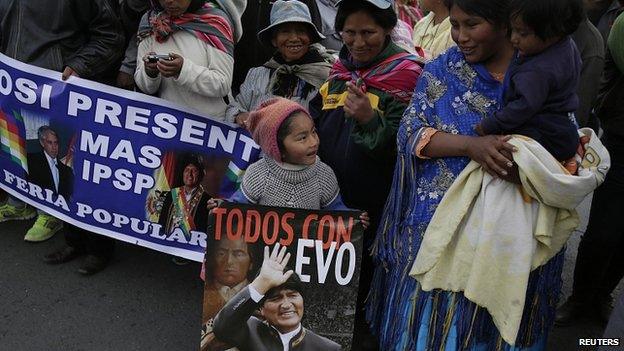
President Evo Morales enjoys strong support among Bolivians, polls suggest
Opinion polls suggest that after almost nine years in power, Bolivia's left-wing leader Evo Morales remains immensely popular. He is seeking re-election on 12 October and with a lead of more than 40 percentage points in the latest polls, his closest rival is facing an uphill struggle.

Why is Evo Morales so popular?
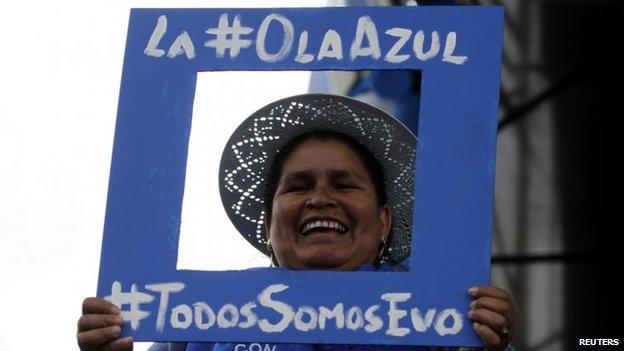
Support for Evo Moales and his MAS party has been dubbed La Ola Azul (the Blue Wave)
Bolivia is enjoying a period of sustained growth. Thanks to the high price of its main export, natural gas, and fiscal prudence, the country's gross domestic product has tripled to over $30bn (£18.6bn) in 2013 since Mr Morales took office in 2006, according to World Bank, external figures.
Many Bolivians have personally benefitted from the nation's growing economy. Social programmes have reduced poverty from 60% in 2006 to 45% in 2011. A significant increase in the income of the poorest segment of the population has reduced inequality. As a result of the education campaign that the president launched, UNESCO has declared Bolivia free of illiteracy, external.
Mr Morales also enjoys a wide base of support among Bolivia's indigenous people, which makes up almost two thirds of the population.
Many say that the president, himself of indigenous origins, gives them the feeling that their voices are being heard even though they have over recent years clashed with him on such issues as plans for the construction of a major highway through the Amazon region.

Could anyone unseat the president?
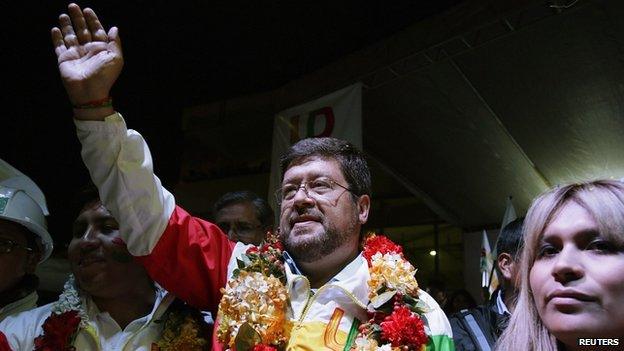
Samuel Doria Medina has called on the opposition to unite
The latest survey by polling company Tal Cual suggests that the incumbent is enjoying strong support with more than 57% of those asked saying they would vote for him.
Mr Morales has won over many former adversaries over the years, having negotiated political and economic pacts with leading business and agricultural leaders.
Fierce opposition to his government in the wealthy eastern region of the country, which pushed for autonomy, external in 2008, appears to have fizzled out.
The opinion poll shows the challengers trailing far behind the president.
Industrialist Samuel Doria Medina has had limited success in uniting the opposition in the Democratic Unity Coalition and only about 18% of those polled said they would cast their ballot for him.
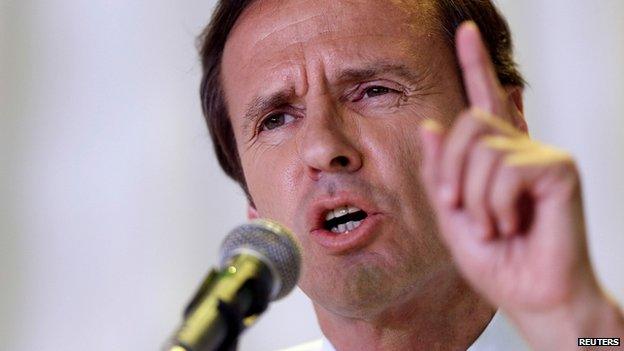
Former Bolivian president and presidential candidate Jorge Quiroga says he is the only true alternative to Evo Morales
The opposition vote is furthermore split between him and Jorge Quiroga Ramirez of the Christian Democratic Party, who scored 10.7% in the Tal Cual poll.
The remaining two candidates have little support, according to that same poll.

What are his rivals saying?
.jpg)
Plans to construct a highway through a national park alienated some of Mr Morales's indigenous supporters
An inefficient judicial system, endemic violence against women and a plan to build a highway across an indigenous territory have provoked broad criticism of the government.
The presidential contenders have accused the incumbent of authoritarianism and have sought to discredit his economic achievements.
They argue that economic growth is a result of foreign investments made in the 1990s.
Instead of further development, the government has wasted money on dubious projects, they say, warning that Bolivia's growing prosperity can come to an abrupt end should the price of its raw materials drop.
The opposition is also critical of the president's enthusiastic support for coca gowing, which they argue makes it hard to distinguish between legal crops used for medicinal and religious purposes and illegal crops for cocaine production.
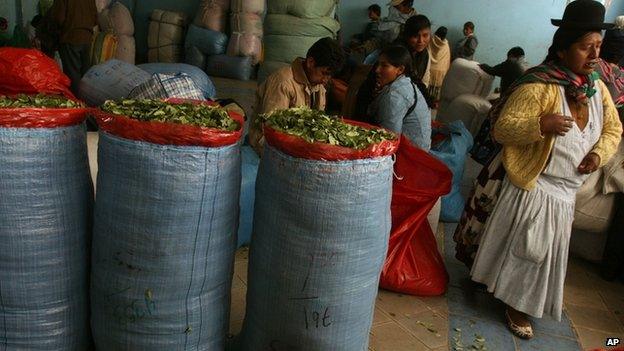
President Morales says coca has great medicinal, cultural and religious value
As for tackling income inequality, the opponents say the incumbent has merely expanded the social programmes of previous governments, pointing out that poverty is still widespread.
Moreover, they accuse Evo Morales of persecuting political rivals, many of whom they say have ended up exiled or in jail.
Several opposition presidential candidates have faced charges, which they say are politically motivated.

Why is the president shying away from debate?
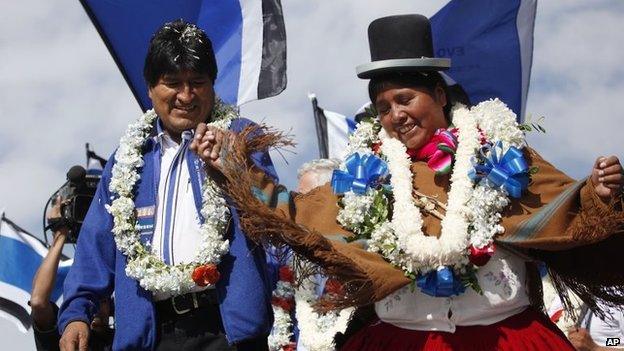
Evo Morales has been criticised for not wanting to take part in televised debates
Evo Morales has repeatedly declined invitations to a presidential debate, saying he has nothing to discuss with those whom he calls pro-imperialist opponents.
The opposition says he is shying away from debate because he would be unable to defend his record in office, but some analysts believe he is uncomfortable in live televised debates and therefore tries to avoid them.
The analysts argue that with such a wide lead in the polls, the president has more to lose than to gain from a confrontation with rivals who may be more refined speakers.
Critics say the lack of debate is a sign that Bolivia has not yet reached its full democratic maturity but the government maintains it has been more inclusive than any of those which preceded it.
BBC Monitoring reports and analyses news from TV, radio, web and print media around the world. More reports from BBC Monitoring can be seen here. You can follow BBC Monitoring on Twitter, external and Facebook, external.